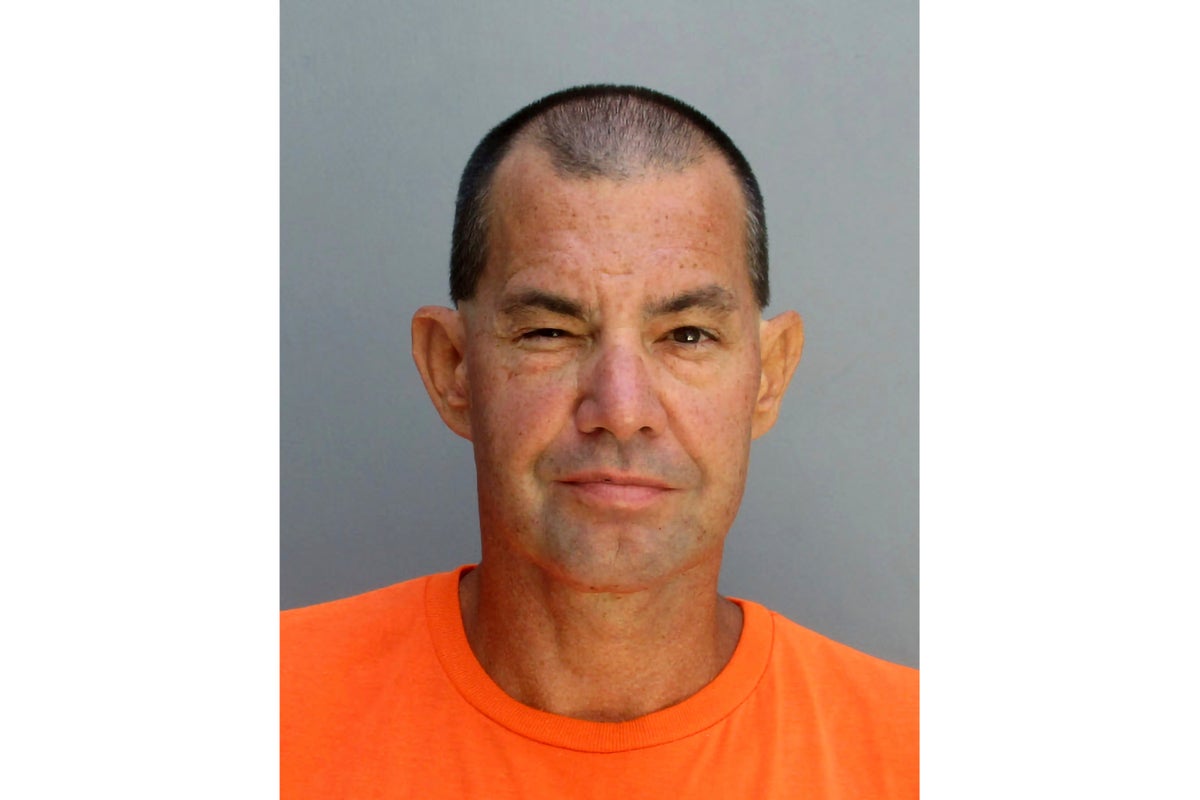
A judge expressed skepticism about whether he can order any changes in response to a lawsuit against Arizona Gov. Katie Hobbs, that attempts to force her to carry out an execution previously scheduled for Thursday.
Superior Court Judge Frank Moskowitz agreed to let attorneys brief their arguments in the coming weeks, but he also said he’s not sure what he has the power to do — since the Arizona Supreme Court order authorizing the execution of Aaron Gunches in the 2002 killing of Ted Price will expire late Thursday night.
“What can I do? There is no warrant of execution to do anything with,” Moskowitz said, noting he can’t issue or extend such a court order. The judge scheduled a June 23 hearing for lawyers to make their arguments.
Hobbs — who has ordered a review of Arizona’s death penalty protocols because of the state's history of mismanaged executions — had vowed to not carry out any death sentences until there’s confidence the state can do so without violating the law.
While the governor's review of death penalty procedures is underway, the office of newly elected Democratic Attorney General Kris Mayes has said it wouldn’t seek any court orders to execute prisoners.
The lawsuit filed by the victim's sister Karen Price and daughter Brittney Kay alleges the Democratic governor and Corrections Director Ryan Thornell exceeded their authority in refusing to execute Gunches. Their lawyers also said in the suit that the state’s refusal to carry out the execution violates their clients’ rights to justice and finality.
Lawyers for Hobbs have said the state lacks staff with expertise to carry out executions. They also said corrections officials are unable to find an IV team to carry out the lethal injection and don’t currently have a contract with a pharmacist to compound the pentobarbital needed for an execution. They also said a top corrections leadership position that’s critical to planning executions remains unfilled.
Bo Dul, an attorney representing Hobbs, said their governor offers her condolences to the Price family for its loss and pain, but said the governor has the discretion to ensure that the death penalty is carried out lawfully and humanely.
“While we empathize with the plaintiffs (Price’s sister and daughter) here, what they seek is an unprecedented encroachment on the executive branch’s authority, duties and expressions,” Dul said.
Ryan Green, a prosecutor with the Maricopa County Attorney’s Office, which represents Price’s daughter in the lawsuit, said that by refusing to carry out the execution, the governor and the corrections director weren’t doing their duties. Green said possible remedies could include ordering the state to prepare for executions to be carried out, in case an execution warrant is issued in the future.
Green said that not allowing the courts to review Hobbs’ decisions about whether to carry out executions would set up a situation in which the governor could decide she isn't going to enforce the law. “The victims will never have their rights in this type of case to prompt and final conclusions,” Green said.
Late Wednesday afternoon, the Arizona Supreme Court declined a request from Price’s sister and daughter to reschedule the execution for May 1.
It was the second time the state’s highest court declined an attempt by Price’s sister to keep the execution on track. Late last month, the court declined Price’s bid to order Hobbs to carry out the execution. The court concluded the governor wasn’t required to carry out Gunches’ execution on Thursday.
Now, Price’s sister and daughter are advancing their claims in a lower court.
Gunches had pleaded guilty to a murder charge in the shooting death of Ted Price, who was his girlfriend’s ex-husband.
Arizona, which currently has 110 prisoners on death row, carried out three executions last year. That followed a nearly eight-year hiatus brought on by criticism that a 2014 execution was botched, and because of difficulties obtaining execution drugs.
Since then, the state has been criticized for taking too long to insert the IV for lethal injection into the person's body and for denying the Arizona Republic newspaper permission to witness the three executions.
Gunches, who isn’t a lawyer, had asked the state Supreme Court to issue a warrant for his execution, saying justice could be served and Price’s families could get closure. In his last month in office, Republican Attorney General Mark Brnovich asked the court for a warrant to execute Gunches.
But Gunches withdrew his request in early January, and Mayes, who replaced Brnovich, asked for the warrant for Gunches’ execution to be withdrawn.
The state Supreme Court rejected Mayes’ request, saying that it must grant an execution warrant if certain appellate proceedings have concluded and that those requirements were met in Gunches’ case.
Gunches switched courses again, saying now that he wants to be executed and asked to be transferred to Texas, where, he wrote, “inmates can still get their sentences carried out.” Arizona’s high court denied the transfer.
Gunches took part in Thursday's hearing, telling the judge, “I want whatever gets my sentence carried out as fast as possible.”







